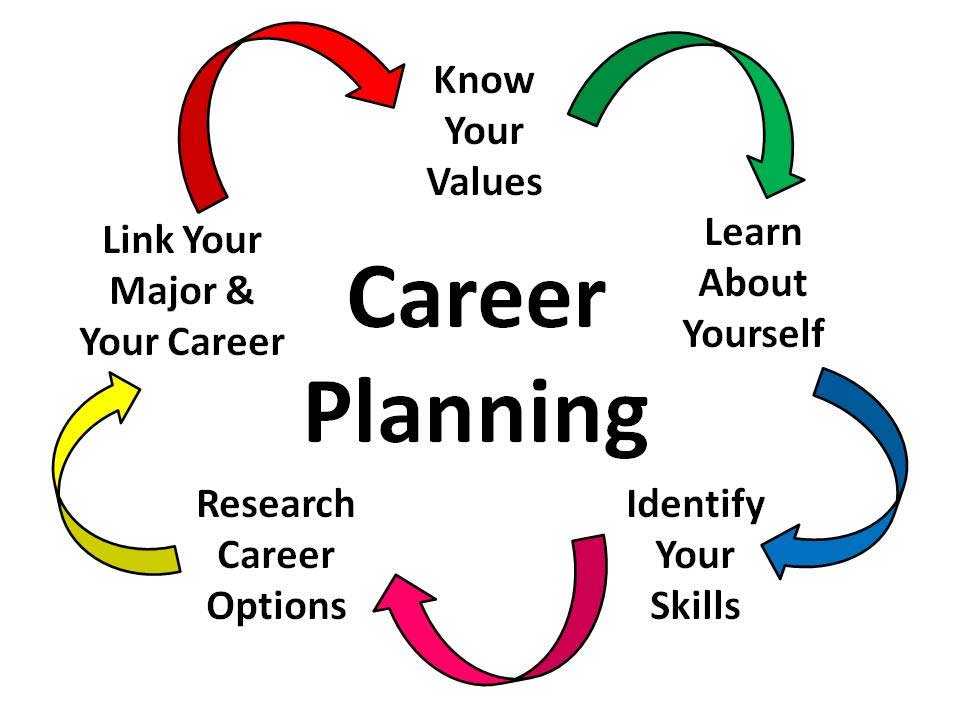
Career planning is an individual′s lifelong process of establishing personal career objectives and acting in a manner intended to bring them about.
Are you not satisfied with the way your career is moving? Don't know in which way you should direct your career? Long past are the days of lifetime employment and now you need to plan careers as how to shift from one organization to another for gaining maximum industry experience. The task of career planning is quite a laborious one and it requires systematic planning of every step and a calculated execution. Take the onus of planning your own career.
In recent decades, career development has seen a shift in the way it is approached. Traditionally, it was up to an organization to ensure that its employees had the skills to meet the company′s long-term goals. Now, however, employees advocate that they are—and should be—responsible for their own career development.
This shift has changed the way that organizations handle career development. Career development is viewed today as a kind of partnership with employees. It is also a key component of a company′s attraction and retention strategy. Many candidates will not consider employment with an organization unless it offers career development as a basic component of its culture.
Career development should be considered from the perspectives of both the organization and the employee:
Organizations should consider two factors when putting together their career development program:
Clearly, an organization must consider its overall direction and goals in order to assess the competencies that they need from their workforce to be successful. It is equally important that the organization take into account an employee′s motivation to succeed as an individual.
A proven method to meet these needs of the organization and the employee involves:
Remember, career paths can entail promotions or lateral transfers. A solid career path program requires detailed job descriptions and support through management coaching.
Definitions:
Career planning encourages individuals to explore and gather information, which enables them to synthesize, gain competencies, make decisions, set goals and take action. It is a crucial phase of human resource development that helps the employees in making strategy for work-life balance.
The major objectives of career planning are as follows:
Use career assessment tools to explore fields further so that you can better utilize guidance from our career staff. This stage helps make you aware of the many possibilities that exist. In addition to learning position titles, you will also discover the skills, educational requirements, and personal attributes needed to be successful in various fields. Gathering this information helps career counselors make suggestions for majors, jobs, and careers that would fit in with your interests and skills. The goal here is to come up with a few options to share with a career counselor.
This stage is useful in deciding between different fields to pursue. What better way to explore career options than to meet with someone working in the field? It entails meeting with people in different positions or industries that you are interested in and asking them questions about their job. This is also the first step in starting to build a professional network. To help you with this stage, pick up a packet in the Career Center on Field Research and Informational Interviews.
After you have looked at your options by doing career exploration and field research, it is time to make a decision and set some goals. The components of this decision are called your Job Target. Your Job Target is the specific industry and position you choose to pursue. It may also include geographic location. Your Job Target can change as you gain more experience and knowledge about yourself.
This stage is ongoing and the more you build your credentials, the better your resume becomes. A great resume leads to interviews and offers. The best ways to build your credentials and knowledge are by:
This stage requires researching companies and organizations you want to work for and establishing if your friends, family, or the Career Center have any leads there. Learn to write calling scripts and develop tactics for approaching employers other than looking at advertisements (which seldom bring quick results). You will also need to get organized by starting a job search binder where all your activities are logged and new information is kept. In addition, it is crucial to educate yourself regarding interviewing and salary negotiations before you meet employers. (Our workshops are a great way to do this.) You have to stand out! It will take most new graduates 3–10 months to find a job, so start early. For a graduate-level student, it may take longer.
Ready? There are many activities involved in launching your job search. Writing a targeted resume is important to show employers how your skills relate to their specific needs. Set aside the time to make calls, write cover letters and thank you letters, conduct interviews, and do research. Be creative with the approaches you use and remember to ask yourself, "Will this help me to stand out from my competition?" Lastly, consistently update your resume with any new skills, knowledge, and experience.